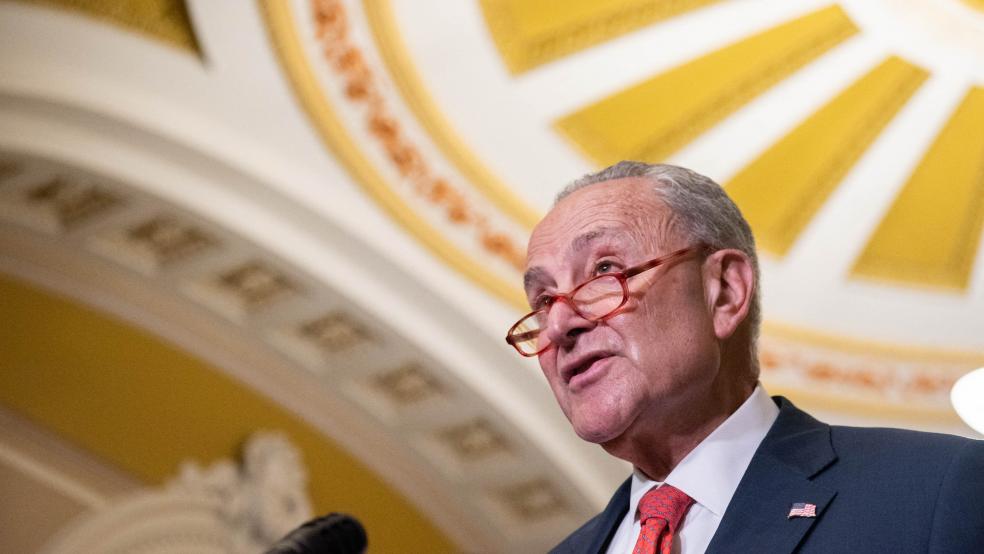The Senate on Thursday night easily passed its version of the $886 billion National Defense Authorization Act for 2024 before heading out for its August recess. The broadly bipartisan vote, 86-11, comes a couple of weeks after the House passed its own version of the NDAA, which included controversial provisions sought by conservative Republicans targeting abortion policy, transgender care and diversity programs. The House vote fell largely along party lines, with only four Democrats voting for the bill.
The NDAA has been passed every year for more than six decades. The competing versions of this year’s bill will have to be reconciled once lawmakers return from their summer break. That means the two chambers are headed for another showdown, similar to the fight they face on annual spending bills. Negotiators will have to figure out how to address those culture war issues included in the House bill as well as questions on support for Ukraine.
Schumer jabs at the House GOP: Senate Majority Leader Chuck Schumer cited the passage of the NDAA as another indication that his chamber is functioning well. He said House Republicans should follow the Senate’s example rather than pursuing partisan legislation that has no chance of being enacted.
“The NDAA – and the bipartisan process we went through to get here – should be a glimmer of hope for the American people, a sign that bipartisanship is alive and well in the Senate,” the Democratic leader from New York said. “But it’s not the only glimmer: We also came together to avert a first-ever default a few months ago, and we are currently making great progress on the appropriations bill, where almost miraculously under leadership of Senator Murray and Senator Collins, they have advanced all 12 bills out of committee with bipartisan support.”
Why it matters: The defense policy bill is another major item on the congressional to-do list that faces an uncertain path because of House conservatives’ agenda on social issues and federal spending.





